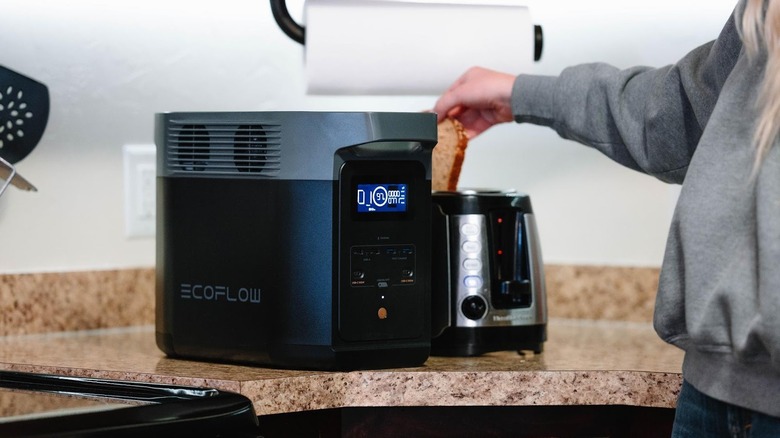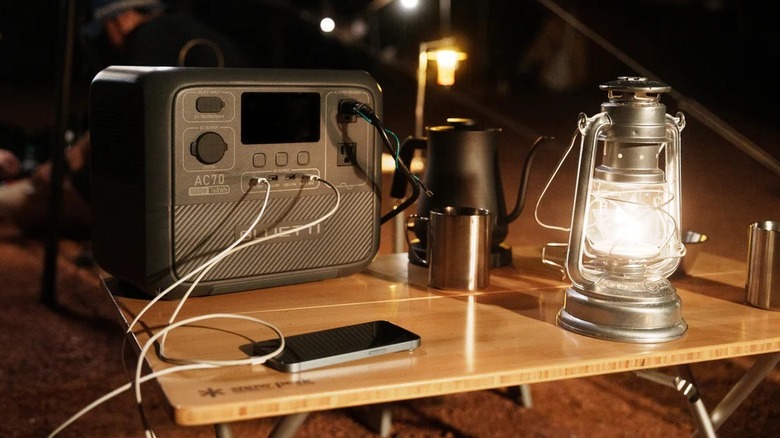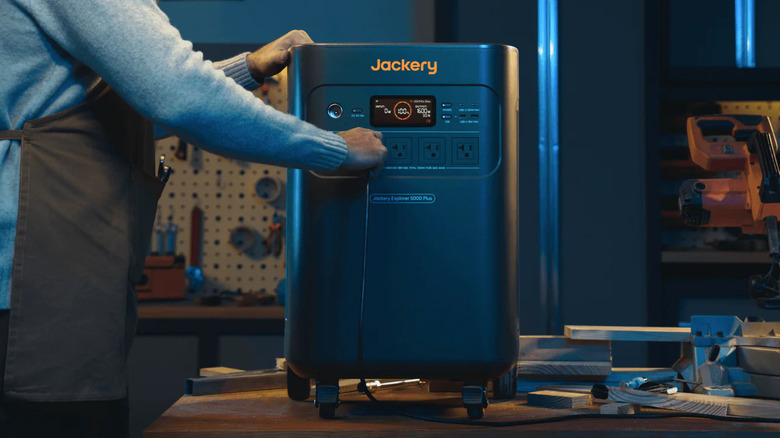Can A Battery Generator Power A House?
During a power outage or when staying off the grid, your first concern is always the electricity. That's why a battery generator (or portable power station) is a wise investment. With a battery generator handy, you won't have to worry about the lights going out, your phone or laptop dying, or the food in your fridge spoiling. You just need to make sure you have the right size for your needs.
Compared to a whole home battery system, a portable power station — as its name suggests — is portable. You can readily fit it in your car, inside your camping tent, or even under your desk. Meanwhile, a home battery like the EcoFlow Smart Home Panel 2 And Delta Pro Ultra is generally harder to relocate due to their bigger size. But this large size also means the whole home battery has a higher power output. While a portable power station is limited to just around 2kW, a home battery comes in outputs of 10kW or more. A home battery is capable of directly connecting to the grid too, unlike a portable power station that only recharges with a wall outlet, solar panel, or car charger.
Despite being less powerful, a portable power station can still run your fridge, AC, and other home devices in an emergency. But the question is, can it also handle powering your entire house? Well, unfortunately, no — battery generators are too small to continuously supply your whole home with power. They're not built to support a load that massive, unless, of course, you live solo in a tiny house with only the essentials. But even then, don't expect it to last more than a few hours. In such cases, the better option is a dedicated home battery system.
The limitations of battery generators
Battery generators are lifesavers for when you need electricity in a pinch, but they won't power your whole house the way the grid does. This is primarily due to their limited total power output. A typical home runs multiple appliances like refrigerator, TV, laptop, fans, and light bulbs all at the same time. On a regular day, you could easily be consuming upwards of 10kW at certain points, especially if you're also using heat-generating or motor-driven devices like space heaters, electric range, AC, and dishwasher. Unfortunately, most battery generators aren't rated to produce 10kW of power. The 2kW total AC output from major power station brands can only power a certain set of appliances.
Besides total output, another limitation to take into account is the battery generator's capacity. The capacity essentially dictates how much energy the unit can store, and in turn, provide for a certain period. In many models, this is between 500Wh to 5kWh. But according to the US Energy Information Administration, the average household energy consumption per year is at 10,500kWh. That's over 28kWh a day, a substantial jump from the mere 5kWh a power station can deliver.
If you need to power your entire house but don't want to rely on fuel generators, a home battery system is a good alternative. Home batteries come in higher capacities of 10kW and up, allowing you to run anything in your home without worries. Unlike a battery generator, though, home batteries need to be installed by professionals first. They're not a plug-and-play system that you can immediately use right out of the box. This setup, along with their bigger ratings, make them more expensive than battery generators.
What can a battery generator power instead?
A battery generator can still power some parts of your home. You just need to make sure that your power station's running and starting watts are equal to or higher than what your connected loads would need. For instance, you plan to plug in the following devices:
- Laptop rated at a running watts of 60W and starting watts of 0
- Small fridge with 400W running and 1,000W starting
- String of LED lights with 25W running and 0 starting
- Electric heater with 800W running and 1,500W starting
To get the battery generator's starting watts (also called total AC power or rated wattage), total all the running watts of your load. In this case, you'll get 1,285W. Add this to the highest starting watts on the list. That will be the power station's starting watts. So, for these particular appliances, you'll need a battery generator with a minimum running watts of 1,285W and starting watts of 2,785W.
Once you find a model that fits these requirements, you can then set your expectations by calculating the total runtime of the unit based on its rated capacity. Considering there's an inherent ~20% energy loss, a capacity of 2.1kWh will only provide you with about 1.68kWh. Divide this by the total starting watts of the load, and you'll have a little over one hour of runtime.


